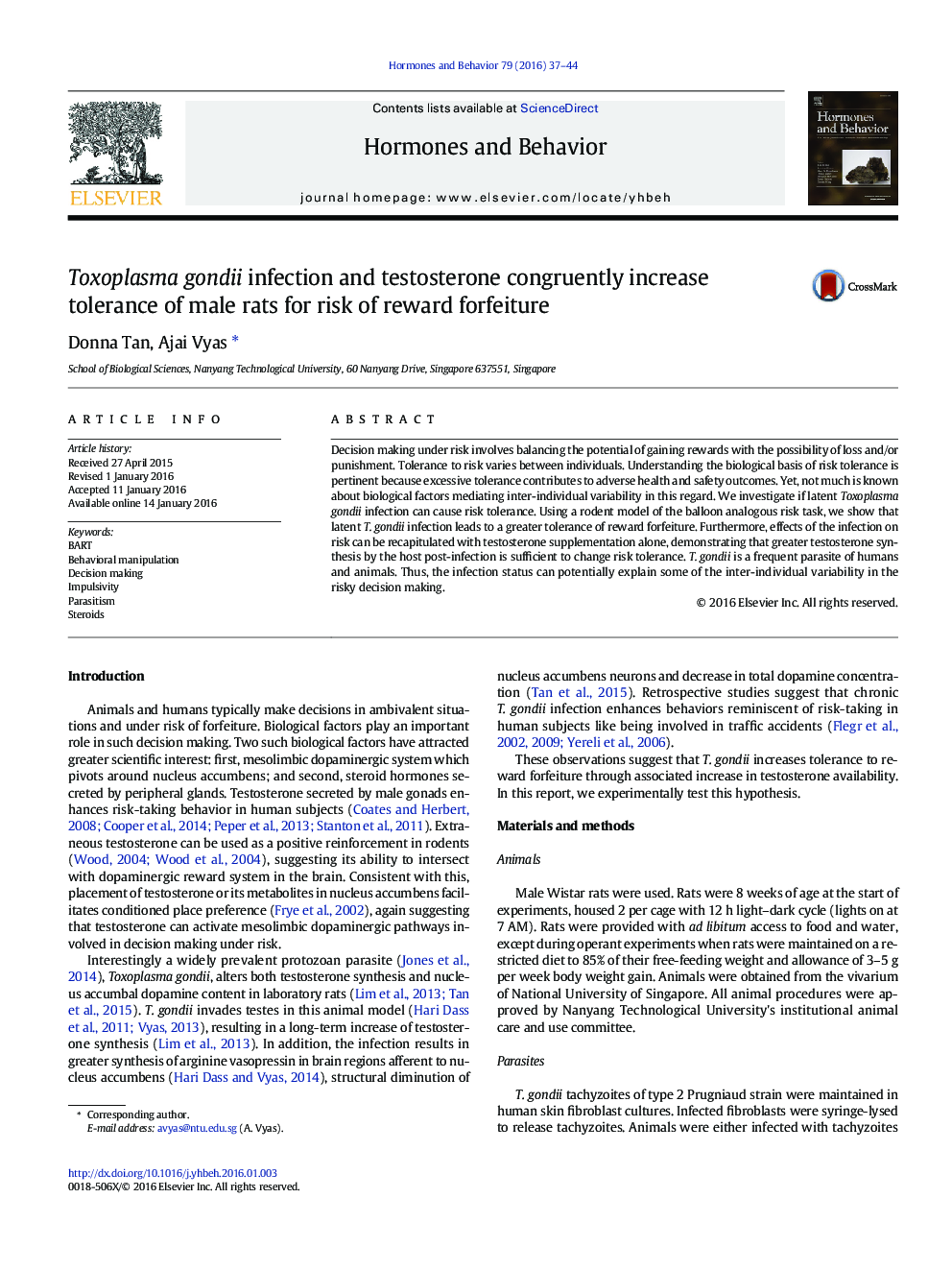| Article ID | Journal | Published Year | Pages | File Type |
|---|---|---|---|---|
| 323044 | Hormones and Behavior | 2016 | 8 Pages |
•We study decision making of rats infected with Toxoplasma gondii.•Toxoplasma gondii creates risk tolerance in infected rats.•Risk tolerance is recapitulated by testosterone.•Toxoplasma incidence possibly contributes to inter-individual variance for risk.
Decision making under risk involves balancing the potential of gaining rewards with the possibility of loss and/or punishment. Tolerance to risk varies between individuals. Understanding the biological basis of risk tolerance is pertinent because excessive tolerance contributes to adverse health and safety outcomes. Yet, not much is known about biological factors mediating inter-individual variability in this regard. We investigate if latent Toxoplasma gondii infection can cause risk tolerance. Using a rodent model of the balloon analogous risk task, we show that latent T. gondii infection leads to a greater tolerance of reward forfeiture. Furthermore, effects of the infection on risk can be recapitulated with testosterone supplementation alone, demonstrating that greater testosterone synthesis by the host post-infection is sufficient to change risk tolerance. T. gondii is a frequent parasite of humans and animals. Thus, the infection status can potentially explain some of the inter-individual variability in the risky decision making.
